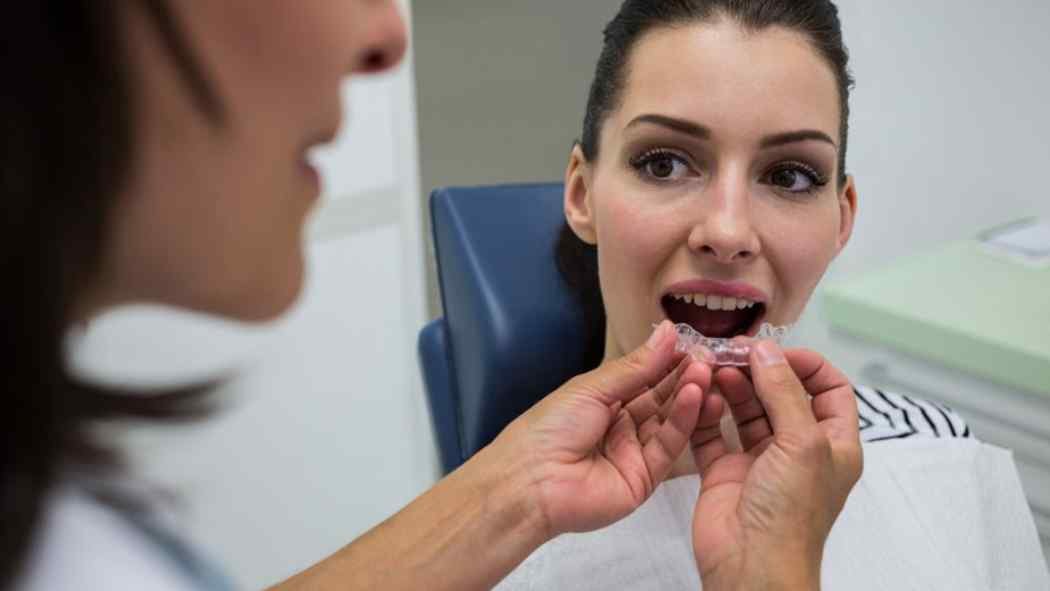Understanding Biocompatible Dental Materials: Safe Choices for Your Smile

Your smile isn’t just about looks—it’s an important part of your overall health. Every dental material that enters your mouth can interact with your body in some way. That’s why more people are turning to biocompatible dental materials—substances that are safe, non-toxic, and work in harmony with your body’s natural systems.
This approach is a key part of holistic and biological dentistry. It focuses on using materials that don’t cause allergic reactions or stress your immune system. If you’ve ever searched for holistic dentistry near me, you’ve probably noticed that these dental professionals take extra care in choosing what goes into your mouth.
Let’s dive into what biocompatible dental materials are, why they matter, and how they’re changing the future of dentistry.
What Does “Biocompatible” Mean in Dentistry?
In simple terms, biocompatible means something that can safely exist within the body without causing harm.
When it comes to dentistry, biocompatibility is about more than comfort or durability—it’s about how your body reacts to the materials used for fillings, crowns, implants, or braces.
A truly biocompatible material should:
- Be safe for tissues, cells, and organs
- Avoid triggering immune or allergic reactions
- Work naturally with your saliva and bone
- Remain stable over time without releasing toxins
Traditional dental materials—especially metals and mercury amalgam—don’t always meet these standards. Holistic dentists believe that choosing safer materials is essential for both oral and overall wellness.
Why Material Choice Matters for Your Health
Your mouth is one of the most absorbent parts of your body. What’s placed there doesn’t just stay local—it can enter your bloodstream, influence nearby tissues, and impact your immune system.
The Hidden Impact of Traditional Materials
Common dental materials like metal alloys, nickel, and mercury fillings have long been used because they’re strong and affordable. But research shows these substances can sometimes cause problems such as:
- Metal sensitivities or allergic reactions
- Low-level inflammation in the gums or jaw
- Toxic exposure over time, especially with mercury
Even materials that seem harmless to most people can create issues for others, depending on genetics, immune health, and chemical sensitivities. That’s why many patients are now asking for safer, more biocompatible options.
What Makes a Dental Material Biocompatible
A biocompatible material is carefully chosen for its ability to integrate safely with the body. Holistic and biological dentists use several criteria when selecting materials.
1. Non-Toxic and Metal-Free
Biocompatible materials avoid metals that could release ions or create electrical currents in the mouth. This includes avoiding amalgam fillings, titanium implants, and nickel-based braces.
2. Chemically Stable
The material should not break down or react with saliva, temperature changes, or food. Stability helps prevent leaching of unwanted substances into the body.
3. Allergy-Friendly
Before placing any material, some holistic dentists perform biocompatibility testing—a blood or patch test that identifies potential allergic responses. This makes the treatment safer and more personalized.
4. Harmonious with Body Systems
The best dental materials don’t stress your immune system or cause inflammation. They support healing, natural tooth function, and long-term health.
Common Types of Biocompatible Dental Materials
Let’s look at the most widely used materials in modern holistic dentistry and why they’re preferred.
1. Composite Resin
Composite resin is a tooth-colored filling material made of plastic and fine glass particles. It bonds directly to the tooth, preserving more of the natural structure than metal fillings.
Benefits:
- Mercury-free and BPA-free options available
- Natural appearance
- Less invasive than metal fillings
- Long-lasting when properly maintained
2. Ceramic (Porcelain)
Ceramic is one of the most biocompatible materials used in modern dentistry. It’s strong, non-reactive, and highly aesthetic.
Benefits:
- Completely metal-free
- Resistant to temperature changes
- Doesn’t conduct electricity or trigger allergies
- Excellent for crowns, veneers, and implants
3. Zirconia
Zirconia is a ceramic-based material known for strength and safety. It’s used in implants, crowns, and bridges as an alternative to titanium.
Benefits:
- Hypoallergenic and durable
- Doesn’t corrode or release ions
- Natural tooth-like color
- Works well for patients sensitive to metals
4. Glass Ionomer
Glass ionomer is a gentle filling material made from glass and organic acid. It releases fluoride gradually, helping protect against decay.
Benefits:
- Suitable for children or small restorations
- Chemically bonds to enamel
- Smooth and comfortable
5. BPA-Free Sealants and Adhesives
BPA (Bisphenol A) is a chemical sometimes found in dental plastics. Holistic dentists choose BPA-free options to prevent possible hormone disruption or toxicity.
These materials together make up the foundation of safe, biocompatible care that respects both your oral and systemic health.
How Holistic Dentists Choose the Right Materials
Choosing the right dental material isn’t a one-size-fits-all decision. Every person’s body chemistry and health history are different.
Individualized Testing
Some dental offices offer biocompatibility testing using blood samples. The test measures how your immune system reacts to dozens of different dental materials. This allows your dentist to choose the safest, most compatible option for you.
Safe Removal of Toxic Materials
If you already have old mercury fillings or metal restorations, your holistic dentist can safely remove them using the SMART (Safe Mercury Amalgam Removal Technique) protocol.
This process protects you and the dental team from mercury vapor by using special barriers, filtration, and oxygen support.
Use of Biocompatible Cements and Adhesives
Even the glue that bonds your fillings or crowns to the tooth is chosen carefully. Holistic dentists pick adhesives that are free from harsh chemicals, minimizing irritation to your gums or tissues.
By combining these safety measures with modern techniques, biocompatible dentistry supports long-term comfort and health.
The Benefits of Using Biocompatible Dental Materials
Switching to biocompatible dental care offers many advantages beyond aesthetics.
1. Whole-Body Health
Because your mouth connects directly to your bloodstream, reducing toxic exposure helps your immune system function better. Patients often report improvements in energy levels, sleep quality, and overall well-being after transitioning to safer materials.
2. Long-Term Comfort
Biocompatible materials are less likely to cause sensitivity, gum irritation, or corrosion. They remain stable and non-reactive for years, providing comfort and confidence.
3. Natural Appearance
Ceramic and resin-based materials match the natural color of your teeth. They reflect light like enamel, giving your smile a realistic, bright look.
4. Environmentally Friendly
Many holistic dental offices use eco-conscious practices—avoiding mercury and toxic waste that can pollute air and water. Choosing biocompatible materials supports a cleaner planet, too.
Common Questions About Biocompatible Dentistry
Are biocompatible materials as strong as metal fillings?
Yes. Modern composites and ceramics are designed to handle daily chewing and wear. In fact, zirconia implants and crowns can sometimes be stronger than metal alternatives.
Do biocompatible fillings cost more?
They can be slightly more expensive upfront, but they often last longer and require fewer replacements—saving money in the long run.
Can anyone switch to biocompatible materials?
Yes. Even if you already have metal fillings or crowns, you can consult a holistic dentist to safely replace them. The process is simple and customized to your health needs.
How to Find a Holistic Dentist Who Uses Biocompatible Materials
If you’re looking for a dentist who values both oral and systemic wellness, searching for holistic dentistry near me is a good place to start.
What to Look For:
- A mercury-free, fluoride-free practice
- Use of safe, modern technologies like ozone therapy and digital X-rays
- Testing for material compatibility
- SMART-certified for safe amalgam removal
- A focus on preventive, natural care
These practices show a commitment to your overall well-being, not just your teeth.
Supporting Biocompatible Dentistry at Home
Good oral care doesn’t stop at the dental office. You can support your health with a few daily habits that align with holistic principles:
- Use fluoride-free toothpaste made with natural ingredients like xylitol or hydroxyapatite
- Floss or use a water flosser every day
- Eat a balanced diet rich in calcium, vitamin D, and leafy greens
- Avoid processed sugar and acidic drinks
- Stay hydrated to support saliva flow and natural cleansing
These steps help maintain a clean, balanced oral environment and extend the life of your biocompatible restorations.
The Future of Biocompatible Dentistry
Biocompatible materials are shaping the next generation of dental care. As technology advances, we’re seeing new ceramics, resins, and bonding agents that are safer, stronger, and more sustainable.
This shift reflects a broader movement toward natural, preventive health care. Patients today want treatments that support the whole body rather than focusing only on symptoms. Holistic dentistry continues to grow because it aligns with that vision—combining science, safety, and mindfulness.
Conclusion: A Healthier Smile Starts with Safer Choices
Your dental materials matter more than you might think. Every crown, filling, or implant should work with your body, not against it. Biocompatible materials offer a safe, effective, and natural path to maintaining oral health without unnecessary risks.
Holistic dentistry helps you achieve a beautiful smile while protecting your body’s long-term wellness. If you’re considering switching to safer dental options, look for a trusted professional who practices holistic dentistry near me and focuses on biocompatible care.
Your smile—and your body—will thank you for making the healthier choice.



